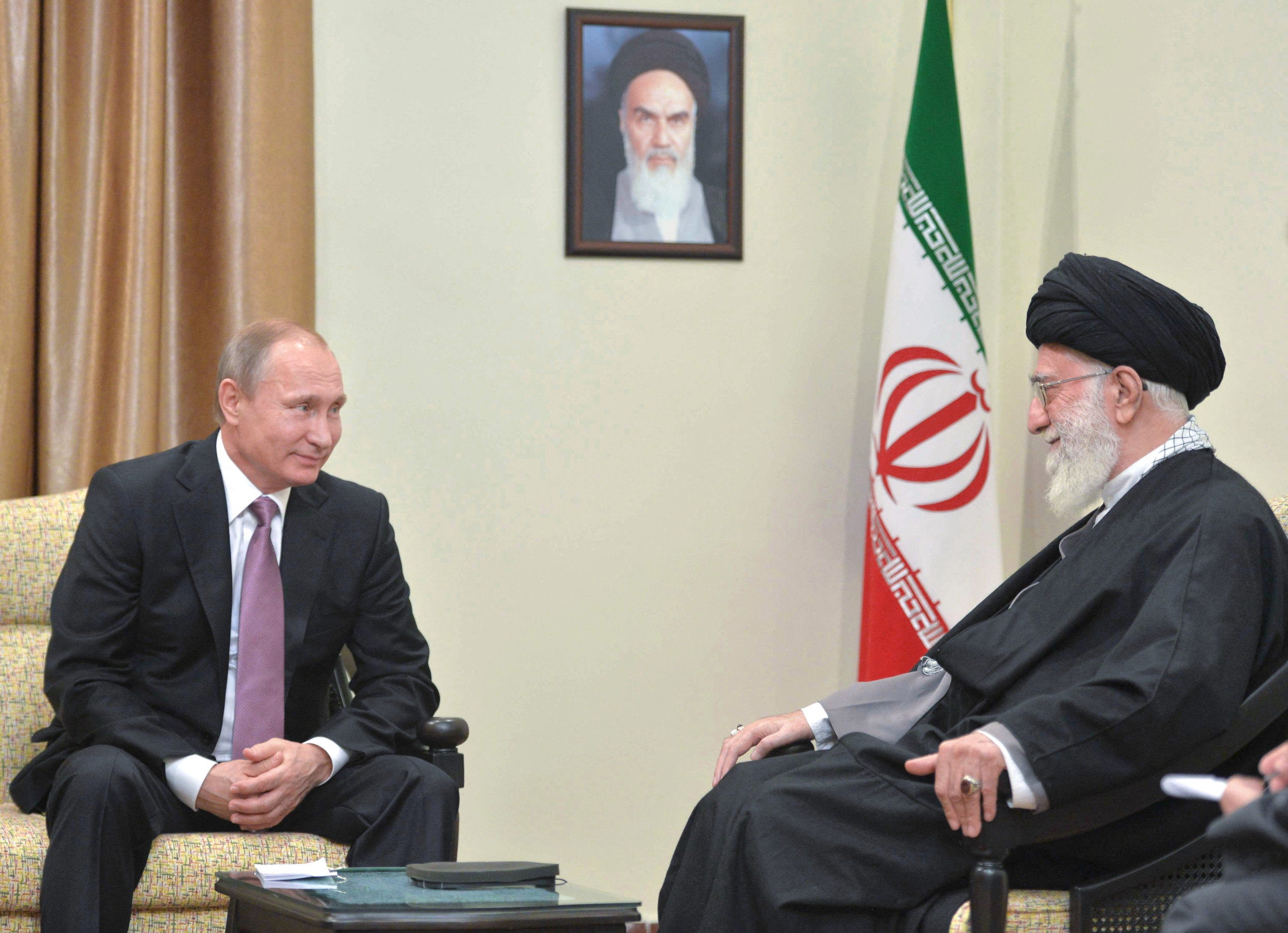
Last month’s conflict between Israel and Iran has only just concluded, but its results are already being felt throughout the Middle East—and beyond.
As a result of Israel’s military offensive, Iran’s nuclear program has been set back substantially. And, following months of strategic drift in Gaza, the Jewish state’s decisive campaign against the Islamic Republic has helped it rebuild regional deterrence. The United States, meanwhile, has finally demonstrated that it is committed to preventing Iran from going nuclear by any means necessary. The region is taking notice; for instance, prospects for an expansion of the Abraham Accords are now the brightest they have been in years.
ALEXEI DRUZHININ/SPUTNIK/AFP via Getty Images
But the conflict that’s already being billed by the White House as the “12-day war” is also notable for what didn’t happen. Despite the dire predictions of many, Israel’s campaign against Iran’s nuclear program (and America’s assistance to it) didn’t lead either Russia or the People’s Republic of China (PRC) to wade into the fray in defense of the Islamic Republic, generating a wider war.
To be sure, both Moscow and Beijing offered up the proper platitudes. Russian President Vladimir Putin decried Israel’s bombing campaign, and his Foreign Ministry issued a formal statement condemning it. Officials in Beijing did much the same, with Chinese Foreign Minister Wang Yi mounting a spirited defense of Iran’s “sovereignty” in the face of Israel’s “illegal” bombings.
Beyond that, however, neither Beijing nor Moscow did anything of substance. Russia did not provide Iran with key battlefield technology, such as air defense components, that could have been used to blunt the effectiveness of Israel’s air campaign. Similarly, China did not roll out its prodigious electronic warfare capabilities to better protect Tehran, despite the sprawling quarter century, $400 billion strategic pact codified between the two countries back in 2021.
The decision of both countries to sit out the conflict tells us a great deal about the extent of their trilateral partnership with Iran. That’s notable, because their anti-Western alliance has seemed positively robust up to now.
Ukraine provides a case in point. Over the past two years, Iran has given Russia key drone technology and other battlefield materiel that the Kremlin has used to devastating effect against Kyiv and other Ukrainian cities. China, meanwhile, has provided extensive support to Russia’s defense industry as part of the “no limits” partnership between the two countries, making it a “decisive enabler” of Moscow’s ongoing aggression against its western neighbor.
They have worked together in other ways as well. Moscow, Tehran, and Beijing have coordinated under the auspices of forums like the Shanghai Cooperation Organization, the Moscow- and Beijing-run security bloc designed to shape security affairs in Eurasia. All three have worked closely in the field of information warfare, parroting each other’s false narratives on everything from COVID-19 to Western imperialism. And all of them have worked diligently to deepen their military ties, culminating in trilateral naval exercises in the Gulf of Oman earlier this year.
In the process, this collaboration has raised worries that a new strategic axis is now working to remake the world order in an anti-Western, authoritarian direction. The recent conflict over Iran’s nuclear program, though, tells a somewhat different story.
But why, precisely? The explanations have varied.
Some experts, like the Washington Institute’s Anna Borshchevskaya, have noted that Moscow benefits when international attention is diverted, thereby giving it greater freedom of action in its own geopolitical neighborhood—most immediately, against Ukraine. The same logic undoubtedly also holds true for the PRC, which harbors clear—and growing—desires over Taiwan.
Or maybe it’s because, as Zineb Riboua of the Hudson Institute has pointed out, a weakened Islamic Republic is of limited utility to Moscow and Beijing. After all, now that the Iranian regime’s military leadership has been decimated and its regional position profoundly eroded, courtesy of Israel, Tehran is far less useful as a strategic partner. As a result, both countries seem to have thought better of getting involved in something that was, quintessentially, Iran’s fight.
Whatever the reasons, the most recent Mideast war has succeeded in laying bare the limits of today’s emerging axis of authoritarians. It’s now up to the United States and its international partners to exploit those shortcomings.
Ilan Berman is senior vice president of the American Foreign Policy Council in Washington, D.C.
The views expressed in this article are the writer’s own.
